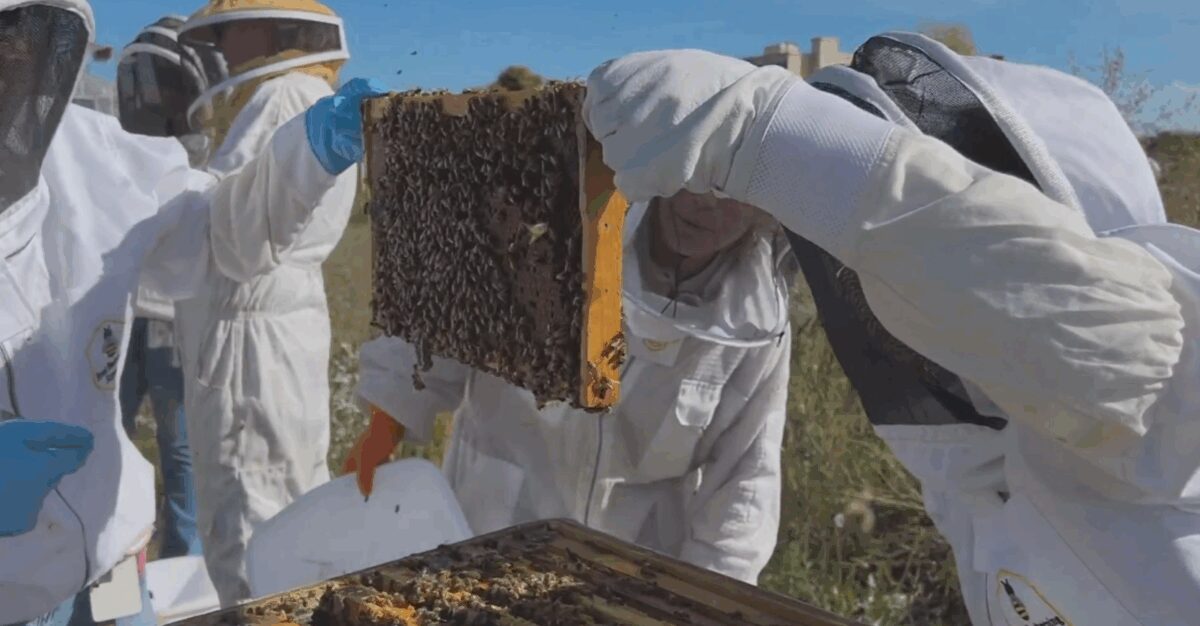Colorado State University launches first honeybee veterinary science course

By Dillon Thomas
Click here for updates on this story
FORT COLLINS, Colorado (KCNC) — Colorado State University is recognized as one of the top veterinary science schools in the United States, and now the university has added a course for studying honeybees for the first time.
The course was created after national regulations shifted in 2017, requiring beekeepers to have their hives medically treated by veterinarians.
“When we were first charged with taking care of bees, not a lot of veterinarians had experience with bees,” said Amy Franklin, a veterinarian and educator at CSU.
This year CSU launched their honeybee veterinary sciences course, helping students looking to be vets become more educated on honeybees and the threats that surround them.
“I’ve been very enamored by bees my entire life,” said Hannah Badenhop, a junior at CSU.
The students and staff come together for hands-on learning at CSU’s apiary, located south of the main campus in Fort Collins.
“Honeybee health is in decline,” Franklin said.
Badenhop is the president of the campus’s honeybee medicine club. She said she used to be scared of bees as a child but has now come to love them.
“I got stung (while studying the bees) and I barely noticed it,” Badenhop said.
The group is studying varroa mites and their impact on honeybees and their viability. The mites can be easily transferred to hives by flowers which bees are traveling back and forth from. The mites can cause the bees to lose their wings and even die.
To test their hive for the mites, the group of students suited up in protective outfits and pulled some of the bees out of their hives. Some were scooped into testing kits.
“I am taking a sample of bees we have collected. They are in rubbing alcohol, so we give them a bit of a shake here. What we are looking for are varroa mites,” Badenhop said. “If you look under here, these little red dots here are the mites which we are looking like for our honeybees.”
Badenhop said there should only be a couple mites in their sample, given the amount of bees she was testing. However, at the bottom of the testing kit appeared to be at least a dozen mites.
“For the amount of bees we have, these are way too many mites for these guys. So, they will need some treatment,” Badenhop said. Franklin said she has come to love teaching how to care for honeybees.
“When you’re working in a hive you have to be in the present moment. You have to have your eyes on the bees, listening to the bees humming and watching them. It is really special to see,” Franklin said. “This is a livestock animal that is critically important to our agriculture and to our food security.”
Badenhop said she hopes other students will see the work being done to study and care for honeybees and consider learning about them as well.
“I think they are amazing creatures. I think the more you understand them the more you can’t help but to love them,” Badenhop said.
Please note: This content carries a strict local market embargo. If you share the same market as the contributor of this article, you may not use it on any platform.